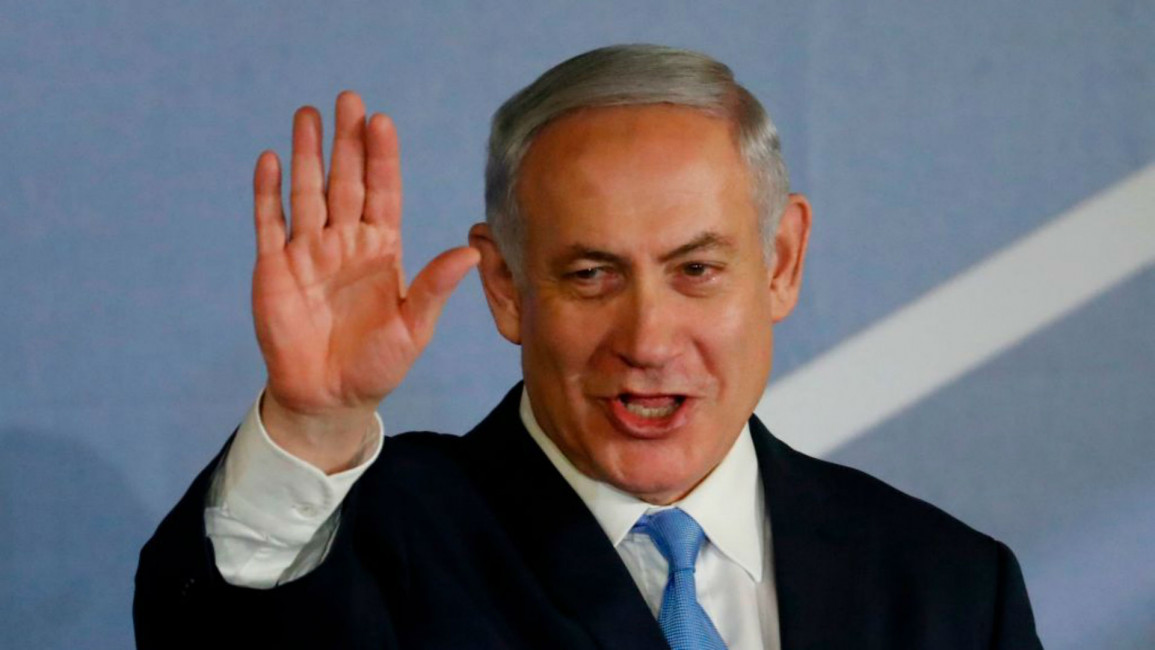
Netanyahu rides to the rescue of the Saudi crown prince (part two)
Tel Aviv's questionable strategy
Even if MBS remains in power, his capacity for serving Israel's interests will be considerably impaired, at least for a while.
According to Daniel Shapiro, former US ambassador to Tel Aviv (and known opponent of the Trump-Netanyahu line) "the Khashoggi murder is a disaster for Israel." Firstly, because it points to the fundamental unreliability of Saudi Arabia under MBS as a strategic partner".
What is the point, he goes on to wonder, of pursuing an alliance with someone who has failed in so many areas - his Yemen war, his relations with Qatar, or his competition with Turkey, the other Sunni power in the region, etc.?
And secondly, because Netanyahu was relying greatly on Saudi Arabia to help strengthen his ties with various Gulf monarchies (especially with Bahrain and Oman) in view of moving ahead with US State Secretary Mike Pompeo's "12-point plan,", meant to gradually tighten the screws on Iran until the regime collapsed.
Though the issue of relations with Saudi Arabia can hardly be said to exercise Israeli public opinion, many regional experts on Israel are now voicing doubts about the shrewdness of the strategy advocated by Netanyahu.
All the more so as it may well turn out to be a short-sighted one (what if, two years from now, Trump fails to be re-elected?).
 |
Netanyahu does not seem to have any alternate strategy |  |
Many fear, for example, that MBS, instead of finding a way out of the quagmire where Saudi Arabia has embroiled itself in Yemen, becomes increasingly bogged down there, frittering away energy that should be devoted to its confrontation with Iran.
And besides, what's in it for Israel to build a coalition with a country its hard to convince the rest of the world is more enlightened than Iran? Thus, at every step we are confronted with the heart of the Israeli debate: As long as MBS is in power, he himself is likely to constitute an obstacle in the way of any effort to build an international coalition against Iran.
Accumulating failures
However, Netanyahu does not seem to have any alternate strategy. Keeping intact his ties with Trump and his influence over the US administration determines the fate of his whole strategy, aimed in particular at showing that it is possible to establish permanent ties with the most important Arab regimes in the region without being hampered by the Palestinian question.
Yet whatever his personal future, we may already wonder whether MBS, even if he continues to hold the reigns of power, will still be in a position to help Trump and Netanyahu force the Palestinians into submission.
Now that his implication in the murder of Jamal Khashoggi has become clear, the implementation of that mirage known as the "American peace plan for the Middle East" has become even less likely.
 |
|
It is hard to imagine that MBS, considering the weakness of his position now, including within the Sunni world, will return to his original idea of settling the Palestinian question by obliging Mahmoud Abbas to abandon his remaining national ambitions. He would then, appear to have become hostage to the two top dogs who have bent over backwards to save the day for him: Trump and Netanyahu.
Moreover, the Khashoggi affair has come at a time when the list of Netanyahu's recent failures is at least as spectacular as that of his successes.
It began on 17 September when the Syrian air defence shot down a Russian IL-20, killing 15 Russian soldiers. Moscow blamed this fiasco on the Israeli air force which was carrying out a major operation nearby on Syrian territory.
Although the matter was settled between Netanyahu and Putin, the friendly relations established over the past few years between Russia and Israel took a markedly sour turn.
Twitter Post
|
Moscow provided the Syrian army with S-300 missiles which were more sophisticated than those it already had. And after that, Israel, which had been carrying out regular strikes against Hizballah in Syria and more recently against the Iranian forces there (over 200 strikes between January 2017 and September 2018) has practically stopped.
On 20 September, Netanyahu had to admit before his parliament that "Russia does not on its own have enough leverage to make Iran's troops leave Syria." A way of saying that Israel's main political objective in Syria - ie. Iran's departure from that country or, failing this, a massive withdrawal of Iranian and pro-Iranian forces far from the Golan border - had been flatly turned down by Putin.
Besides which, in his efforts to "stabilise" Syria, Putin also seems to have convinced Iran to stop supplying Hizballah by way of Syria (the missiles from Iran arrived in Damascus and were then transferred by lorry to Hizballah forces in Syria and Lebanon).
As a result, for the first time, the Iranians have begun sending the missiles directly from Tehran to Beirut by air using a private company... owned by the Revolutionary Guards.
Before this fait accompli, Israel hesitated: How to justify a strike against commercial planes and a civil Lebanese airport?
A strike aimed at putting an end to these deliveries might have unforeseen consequences. Or should they wait and run the risk of seeing Hizballah greatly improve its firepower on Israel's Northern border?
A meeting in Brussels between Netanyahu and Pompeo on 3 December appears to have constituted a final Israeli warning to Iran before a major offensive against Lebanon was launched to force Tehran to remove its missiles.
However, it is very unlikely that Iran will yield to the threat. At a time when sabre-rattling is again to be heard between Israel and Iran, the weakening of the Saudi regime is certainly not good news for the former.
This article was originally published by our partners at Orient XXI.
Sylvain Cypel, a former correspondent for Le Monde, is the author of 'Walled: Israeli Society at an Impasse'.
Opinions expressed in this article remain those of the author and do not necessarily represent those of The New Arab, its editorial board or staff.




